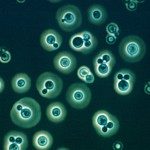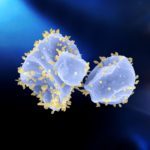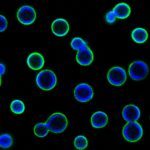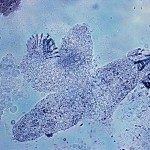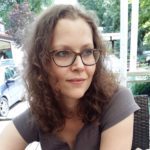About
Symposium on MICROBIAL EXTRACELLULAR VESICLES
June 15th, 2023 – 9.20-18.05 – Auditorium François Jacob
Presentation
Extracellular vesicles (EVs) are particles enclosed by a membrane that cells release into the extracellular space. They are present in all life domains, including microbes, and facilitate intercellular communication by transporting a broad range of compounds such as nucleic acids, lipids, proteins, sugars, and ions. This transported information can significantly impact the behavior and metabolism of the recipient cells. For instance, EVs have been observed to play crucial roles in regulating antimicrobial resistance and host-pathogen interactions. The study of microbial EVs is a rapidly evolving field with exciting prospects for developing diagnostic and therapeutic tools.
At the symposium, leading experts in the field will present their latest research findings and engage with attendees on the most recent developments in the study of microbial EVs.
Program and registration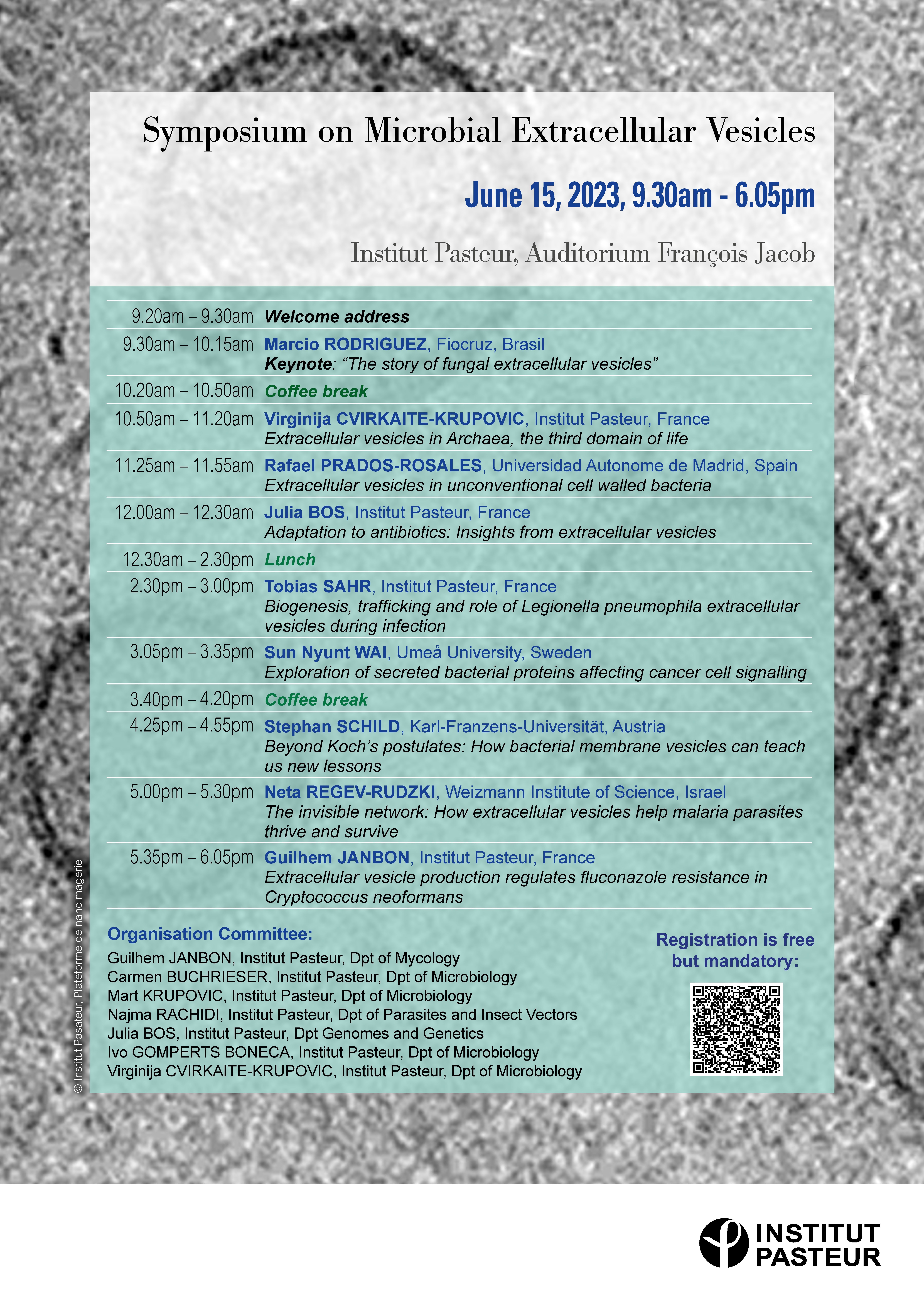
Register here: www.evenbrite.fr or scan the QR code on the poster
Meet the speakers:
- Marcio Rodriguez (Fiocruz, Brasil)
Marcio Rodrigues is a Brazilian researcher at Fiocruz who is considered a pioneer in the study of extracellular vesicles in microbes. His work has focused on understanding the role of these vesicles in bacterial communication and host-pathogen interactions. Rodrigues has published numerous articles in leading scientific journals and has contributed significantly to our understanding of this emerging field. (https://orcid.org/0000-0002-6081-3439)
- Virginija Cvirkaite-Krupovic (Institut Pasteur, France)
Virginija is a specialist of Archaeas and their interaction with their viruses. Her research focuses on functional characterization of membrane-bound extracellular vesicles (EVs) produced by hyperthermophilic and acidophilic archaea of the order Sulfolobales. (https://orcid.org/0000-0002-0876-9397)
- Rafael Prados-Rosales (Autonomous University of Madrid, Spain)
Rafael Prados-Rosales is a researcher and professor at the Autonomous University of Madrid in Spain. He has expertise in the fields of bacteriology and mycology. His research focuses on the study of bacterial and fungal infections, and he developed a strong expertise on the structure of the cell wall. (https://orcid.org/0000-0001-5964-0166)
- Julia Bos (Institut Pasteur, France)
- Tobias Sahr (Institut Pasteur, France)
Tobias Sahr is a researcher at the Institut Pasteur in Paris, France. His research interests lie in the field of host-pathogen interactions and the immune response to infections. He notably focuses on understanding the contribution of EVs to the response of Legionella pneumophila during infection. (https://orcid.org/0000-0003-1082-3476)
- Sun Nyunt Wai (Umea University, Sweden)
Sun Nyunt Wai is professor at the Umea University. Her research aims to unravel mechanisms in the interaction between microbes and host cells to better understand the causes of infectious diseases and to find new opportunities to prevent and cure them. (https://orcid.org/0000-0003-4793-4671)
- Stefan Schild (Karl-Franzen University, Austria)
Stefan Schild is associate professor at the University Karl Franzen of Graz (Austria). His research focusses on the biology of the outer membrane and the associated structures of Gram-negative bacteria, including their roles on virulence and development of vaccines. (https://orcid.org/0000-0001-7842-0177)
- Neta Regev-Rudzki (Weizman Institute for Science, Israel)
Neta Regev-Rudzki is a researcher and senior lecturer at the Weizmann Institute of Science in Israel. Her research focuses on the interaction between malaria parasite and host cells, and between infectious agents, with a focus on how EVs contribute to those interactions. (https://orcid.org/0000-0001-7252-0193)
- Guilhem Janbon (Institut Pasteur, France)
Guilhem Janbon is researcher at the Institut Pasteur and Head of the department of Mycology. His research focuses on understanding the molecular mechanisms that underlie fungal infections, particularly those caused by the pathogen Cryptococcus neoformans. (https://orcid.org/0000-0002-4788-1154)

